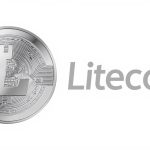
Vodafone Shares Dive 9% as Telecom Giant Flags £1Bn Writedown on German Ops Amid Regulatory Hurdles
The FTSE 100 giant telecom player, Vodafone Group, survived a bloodbath session at the London Stock Exchange today, with the stock crashing more than 9% after having warned of a PS1 billion impairment charge on its unperforming German business unit.
This announcement, which was buried in a routine update on regulations, illustrated the ever-increasing fissures in Europe’s biggest mobile market, where intense rivalry and regulatory tangles have diminished margins.
The writedown, which relates mainly to spectrum auction expenses and network upgrades, is indicative of Vodafone having difficulties in realising 5G investments amid price wars with Deutsche Telekom and O2.
The management admitted that the full-year EBITDA will fall short of the expected level as it will be pulled down by the difficult market conditions in Germany, which is the largest revenue generator in the group (30% of group sales). Shares that had been around 75 pence prior to the announcement plunged to 68 pence, losing PS2.5 billion of their market value and going to new lows in several years.
This loss tops off a turbulent year of Vodafone, as its turnaround strategy of selling its assets and joint ventures in fibre falls apart. Investors who had previously become cautious due to a reduction in dividends early in the same year added to the decline, with short interest reaching up to 5% of float. Analysts if weakened wholesalely, and reduced targets by 10-15% on the basis that there are execution risks in an oversaturated EU telco market.
London gossip cites industry-wide ill health: UK mobile charges are capped by Ofcom, and EU antitrust investigations block mergers, such as the aborted union between Vodafone and Three UK. The digital services tax increase in the Budget is an insult and is likely to drain PS 200 million of the annual revenues of Big Tech that telcos are desperate to access.
FTSE 100 Telecom Tumble Burdens Index Investors Exodus Cyclicals
The rout of Vodafone, which pulled BT Group and Airtel Africa 4-6% lower, pushed the FTSE 100 telecoms scorecard 3%. The London blue-chip index was down, equally on pharma, but energy volatility on OPEC jitters.
Economists explain the predicament of Vodafone in the context of a post-Brexit telecom rebound: the reintroduction of roaming charges has failed to offset the explosion in data consumption, and inflation-squeezed customers are abandoning the higher tier of pricing. The gigabit deployment in Germany under the order of Berlin requires capex spikes with no certain returns on investment, which heightens the burden of Vodafone’s debt of EUR20 billion.
In the case of Vodafone, a spin-off of Racal in the 1980s, resilience is based on pivots. The board boasted of strategic disposals – it looked at a EUR5 billion tower sale in Italy – and IoT expansion, as enterprise revenues increased 8%. Our key markets are ramping up fibre-to-the-home, and we are giving suggestions on UK alt-net acquisitions to rival Virgin Media, stated Della Valle.
The trading volumes increased three times, with institutional outflows to defensive assets such as utilities prevailing. The 8% yield of the stock is enticing income hunters, although the sustainability of the payouts hangs in case the free cash flow drops to less than PS2 billion.
Restructuring the EU Telco: Can the Vodafone Merger Maze Revival?
With Brussels considering more lax consolidation regulations, Vodafone lobbyists seek for Three to pass, they promise PS11 billion of synergies and quicker 5G. Any rejection would be subject to fire sale, according to experts, and watering down shareholder value.
The roadmap of management consists of a PS1 billion cost reduction through AI automation and headcount reductions, aiming at 5% increase in EBITDA by 2027. Google’s collaboration on edge computing would open cloud revenues, but regulatory green lights are behind.
Sceptics rave on over-optimism: a possible sterling boom would tighten the margins on exports, and Huawei bans inflate the prices of kits. However, when forward earnings are 5 times, Vodafone shouts value – or a bottom-fishers trap.
With the dust subsiding, the fall of Vodafone is comparable to the UK plc digital predicaments. In a world where connectivity is a key factor in growth, this icon HQed in Newbury needs to redefine or face irrelevance in a wireless world.



 Bitcoin
Bitcoin  Ethereum
Ethereum  Tether
Tether  XRP
XRP  USDC
USDC  Solana
Solana  TRON
TRON  Lido Staked Ether
Lido Staked Ether  Cardano
Cardano  Avalanche
Avalanche  Toncoin
Toncoin